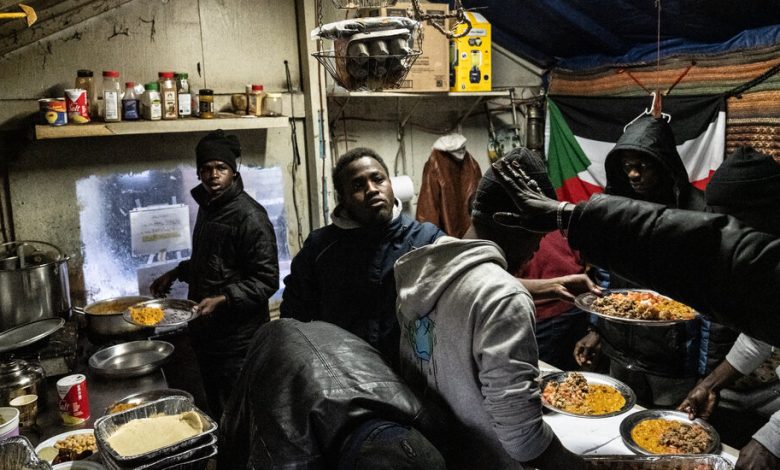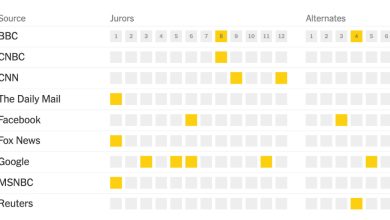Breaking the Ramadan Fast With Some of Brooklyn’s Newest Arrivals




During Ramadan, the backyards of Fulton Street buzz like a busy restaurant kitchen, as teams of young African men chop vegetables, stir pots and bake bread.
These outdoor iftar factories, where the cooks prepare a charity meal to break the fast at sunset, are in Bedford-Stuyvesant, one of New York City’s most rapidly gentrifying neighborhoods.
In recent months, its hip white newcomers and longtime African American residents have been joined by African migrants, mostly young men, who are part of an influx that is slowly reshaping the city.
Supported by
SKIP ADVERTISEMENT
Breaking the Ramadan Fast With Some of Brooklyn’s Newest Arrivals
New migrants from Africa have joined a changing community in Bedford-Stuyvesant, where they have injected more youthful energy but also brought challenges.
-
Share full article


By Liam Stack
Photographs by Stephanie Keith
The migrants in Bed-Stuy are mostly from Sudan and West Africa, and they have energized the neighborhood’s Muslim community. They bring youthful crowds to its mosques and businesses, but are also in desperate need of assistance and basic services, including food, long-term housing and work authorization.
Their arrival has made places like Fulton Street into community hubs, as well as a stark illustration of the forces transforming New York City in ways both large and small.

Hassan Mohamed, 61, has lived in Bedford-Stuyvesant for nearly 20 years. His backyard has become a hangout spot for recent migrants.
Hassan Mohamed, 61, a Sudanese businessman who helps pay for a daily iftar held in his backyard, came to America in 1987. He has lived in Bed-Stuy for almost 20 years, and said he had five friends who were killed in the neighborhood in the 1980s and ’90s.
“I came here when Bed-Stuy was a very different neighborhood. It was very dangerous back then and you couldn’t walk outside,” he said. “It has become a trendy neighborhood now. You see a lot of different kinds of people.”
On one end of Mr. Mohamed’s block, a new Shake Shack sits across the street from Masjid at-Taqwa, a mosque that broke away from the Nation of Islam in 1981. At the other end, a condo tower, its windows studded with Monsteras and other fashionable houseplants, looms over the backyards where migrants break the Ramadan fast.



